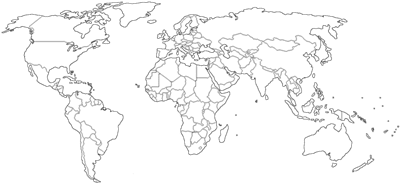Results.
Showing 1 to
No Tender Found! |

Most trusted source for Tendering Opportunities and Business Intelligence since 2002
Get access to latest GCC healthcare equipment services tenders and bids. Find business opportunities and government contracts for GCC healthcare equipment services tenders, government healthcare equipment services tenders GCC, x-ray equipment, GCC clinical trial tenders, GCC medical equipment, GCC public health services tenders, GCC healthcare consulting tenders. Find GCC healthcare equipment services bids, tenders, procurement, RFPs, RFQs, ICBs.
A medical device is any device intended to be used for medical purposes. Significant potential for hazards are inherent when using a device for medical purposes and thus medical devices must be proved safe and effective with reasonable assurance before regulating governments allow marketing of the device in their country. Medical equipment is designed to aid in the diagnosis, monitoring or treatment of medical conditions. Diagnostic equipment includes medical imaging machines, used to aid in diagnosis. Examples are ultrasound and MRI machines, PET and CT scanners, and x-ray machines. Treatment equipment includes infusion pumps, medical lasers and LASIK surgical machines. Life support equipment is used to maintain a patient's bodily function. This includes medical ventilators, incubators, anaesthetic machines, heart-lung machines, ECMO, and dialysis machines. Medical monitors allow medical staff to measure a patient's medical state. Monitors may measure patient vital signs and other parameters including ECG, EEG, and blood pressure. The delivery of healthcare services from primary care to secondary and tertiary levels of care is the most visible part of any healthcare system, both to users and the general public. There are many ways of providing healthcare in the modern world. The place of delivery may be in the home, the community, the workplace, or in health facilities. The most common way is face-to-face delivery, where care provider and patient see each other in person. This is what occurs in general medicine in most countries. However, with modern telecommunications technology, in absentia health care or Tele-Health is becoming more common. This could be when practitioner and patient communicate over the phone, video conferencing, the internet, email, text messages, or any other form of non-face-to-face communication. Practices like these are especial applicable to rural regions in developed nations. These services are typically implemented on a clinic-by-clinic basis.
A common market was launched on 1 January 2008 with plans to realize a fully integrated single market. It eased the movement of goods and services. However, implementation lagged behind after the 2009 financial crisis. The creation of a customs union began in 2003 and was completed and fully operational on 1 January 2015. In January 2015, the common market was also further integrated, allowing full equality among GCC citizens to work in the government and private sectors, social insurance and retirement coverage, real estate ownership, capital movement, access to education, health and other social services in all member states. However, some barriers remained in the free movement of goods and services. The coordination of taxation systems, accounting standards and civil legislation is currently in progress. The interoperability of professional qualifications, insurance certificates and identity documents is also underway. Gulf Cooperation Council (GCC), political and economic alliance of six Middle Eastern countries—Saudi Arabia, Kuwait, United Arab Emirates, Qatar, Bahrain, and Oman.
No Tender Found! |